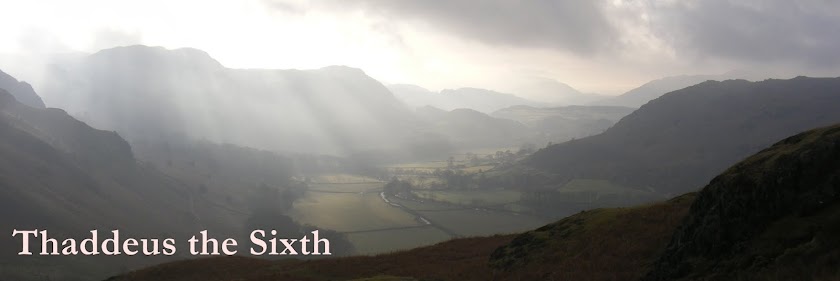Although my main fiction genre is fantasy I do watch sci-fi
and occasionally read it (on that note, I’ll post an interview later this month
with Toby Frost about his forthcoming sci-fi comedy A Game Of Battleships).
One of the problems/features that sci-fi and fantasy share
is that there are often various races, but they’re all (well, almost all)
overtly humanoid. Elves are humans with pointy ears, likewise Vulcans. Orcs are
ugly humans with poorly developed social skills. Bajorans are humans with a
slightly crinkly nose. Borg are humans who really like Google Glass.
On TV there’s a pretty fair explanation for this: endless
special effects and makeup cost a lot, and it’s much easier to have simply put
on some pointy ears. And there are exceptions (the daleks being perhaps the
best-known).
But should this be the case? It seems astoundingly unlikely
that if intelligent life has evolved elsewhere in the galaxy that they’d be
very similar to us. (Whilst it’s true that convergent evolution on Earth means
that, at an early stage, dolphin and human embryos are indistinguishable and
most higher mammals have the same basic internal organ layout this convergence
has occurred in the same world).
Fantasy has slightly more leeway for such convenience, as
stories often take place on a single world, and the sometimes direct role of
gods in evolution (plus magic) gives a convenient get-out clause. But sci-fi,
to a greater or lesser extent, must aspire to be at least vaguely
scientifically credible.
Certain features (the ability to sense light, physically
manipulate the world in a dextrous manner, communicate and an advanced brain)
seem essential, but there’s no guarantee the same orders of animal life
(mammals, reptiles etc) would have evolved.
Any species advanced enough to travel on an interstellar
basis would presumably also have access to genetic technology (assuming, of
course, that they had genes), which could have significant implications.
As far as motivation goes, most sci-fi/fantastical races are
seen as having the same basic drives as humans, with perhaps a slant towards
conquest and dominion (orcs and Klingons), acquisition (the Ferengi) or
peaceful isolation (the Nox). The only guarantee would be that a species would
seek to thrive and survive, as that’s the basis of all species. Given how
warlike humans are, one might suspect that avoiding or eliminating us would be
the most rational course of action from an alien race.
Of course, another issue for sci-fi/fantasy is taking a
species seriously. The Ferengi were originally intended to be the new villains
of The Next Generation, but because they looked more comical than frightening
they ended up becoming pathologically capitalist instead of a warring race.
And, in defence of sci-fi originality, at least it doesn’t
re-use species so often as fantasy. Whilst humans are fair enough, it’s pretty
commonplace to read of elves and dwarves and orcs (although not hobbits,
interestingly, which are firmly seen as Tolkien’s particular species).
I’ll be introducing a new race (ahem, humanoid, it must be
said) in Kingdom Asunder, and I might well bring back one that was used in
Journey to Altmortis.
Thaddeus



No comments:
Post a Comment